- Home
- Peter Ackroyd
The Fall of Troy Page 4
The Fall of Troy Read online
Page 4
She was enveloped by the wind once more, and strained to catch his words. You see nothing, she thought, and you see everything.
In fact Lineau’s blindness had not affected his passion for archaeology. He took no part in the digging, but he had an unrivalled reputation for the recognition and identification of finds. From the texture of a fragment of vase he could determine the period in which it had been used; from the loop of a handle, or the rim of a broken dish, he could reconstruct the entire shape of the piece. He knew the provenance, and the variety, of each item laid before him; he could trace the delicate lines where a figure or pattern had been inscribed upon the surface.
“Your husband used to read Homer to me each evening,” he said. “I have missed him.”
“I detained him in Athens too long, I expect. Forgive me.”
“There is nothing to forgive. You are young and, from your voice, I judge you to be beautiful.” She laughed. But then there was a movement somewhere on the side of the mound. “The Turkish guard,” he said. “Villagers come here searching for gold.”
“Do they find it?”
“We cannot be sure. Something hidden from us by chance—something overlooked. It is possible. The wind is blowing too hard for you, I think.” She had not realised that she was shivering. “Let me escort you to your little house.” He led the way up the track towards the plateau. “You must beware of centipedes, Frau Obermann. I think of them as their names, little Latin animals. In Greece, I believe, you call them sarantopodia.”
“Yes. With forty feet.”
“And forty mouths. They have a deadly bite. You must sweep your ceiling every night.” She shuddered. “Let me show you something. It will make you less fearful. Over here.” He led her down a portion of the slope, just beyond the walls of the palace, where there was a small circular construction of stone. “Do you see it, Frau Obermann? I believe that here was the shrine of their god. Its image was kept in a wooden box.”
“It was Zeus?”
“Zeus. The lord of the dark clouds. The shaker of the earth. He had a thousand names. Be quiet, if you please. The god is still here.” They stood in silence for a while, with the calling of the owls all around them, and then he touched her arm. “I will take you back now.”
WHEN SHE AWOKE, the following morning, Obermann was nowhere to be seen. She boiled some coffee on the Franklin stove, tucked away in a corner of the alcove used as the kitchen, and as she sipped it she noticed with some surprise that her mood had altogether changed. She no longer felt the weariness she had first experienced when she had toiled up the slope of Hissarlik. She no longer felt desolate. The god was still here.
She left the hut, and saw her husband standing on one of the mounds like a conqueror, calling out to various workers and pointing with his ebony cane. “Go there with your spade! Do you see that curve in the wall? Dig! Dig!” He caught sight of his wife, and turned to greet her. “While you slept, Sophia, I have ridden down to the sea and bathed. I am refreshed. I have conversed with Poseidon! He said to me, ‘My dear Obermann, your wife should be with you.’”
“I am sorry, Heinrich. Our journey tired me.”
“You cannot be tired here, dear Sophia. We are in the first days of the world. Demetriou!” he called, to one of the workmen. “What is that depression there? Is it a pit?”
She did indeed feel strangely exhilarated. She was looking north over the Trojan plain towards the Dardanelles and the Hellespont, but when she turned, she could see the peaks of the Ida mountains covered with snow. On the other side was the coastline, the sea and the distant island of Tenedos. It occurred to her that there were in nature only curved lines, like the slopes of the hill on which she was standing, and that all was in unison. She watched the men and women, bent over to dig into the soil: they were digging simultaneously in several places, and she noticed that they had acquired a continual and consistent rhythm of working.
“You see, Sophia, it is like a child being raised from the dead. My child! It has come to life after thirty-one centuries. Now here comes my nemesis. He is our Turkish overseer. A monster. Good morning to you, Kadri Bey.” Obermann made a flicker of his fingers from belly to breast to forehead; at the same time he bowed, a gesture reciprocated by the official, who was dressed in a kaftan of white cloth with an embroidered leathern girdle in the approved Constantinople style. “You see that Frau Obermann has joined our little band.”
Kadri Bey bowed and again touched his chest. “Welcome, welcome. We are honoured.” She noticed that his eyes were very bright. “This is a land of treasures, Frau Obermann, as you can see.”
“We are not interested in treasure, Kadri Bey. We are interested in history.”
“Of course, Herr Obermann. But the ladies love treasures.”
“I do not love treasures,” Sophia said. She observed that a curved dagger was attached to his girdle.
“May I show your wife something?”
“Of course.”
Kadri Bey led her across the plateau among the carts and the wagons. “English wheelbarrows,” he said. “Iron wheels. Very good.” He picked up a hoe. “In Turkish we call this eschapa. But this is not what I show you.” They walked over to a low wall, against which two men were kneeling and cutting away the earth with short knives. “Do you see the fragments all around here?” She nodded; she could see small pieces of baked clay and bone. “Ancient pottery. But there is something else.” He muttered to one of the workmen, who took from the pocket of his canvas waistcoat a linen cloth; within it was wrapped what looked to Sophia like gold wire clotted with dark soil. “Rings for the ears,” Kadri Bey said. “A lady wore them once.” His eyes glittered as he spoke to her.
She smiled and turned away, walking across the plateau to rejoin her husband. “Do you like our Turk?” he asked her.
“I do not know him.”
“It is said that the Turk hates the Christian, but he is the worst of all. His conceit is boundless. His knowledge is nothing. And I am obliged to pay him fifteen pounds a month in English sterling for the privilege of his company! He is sent here by the Turkish government to spy on me. That is all.”
“To spy?”
“They do not trust me. He instructs his workmen to give him the finds, which he notes down before presenting them to me. The Turks believe that I will make them disappear into thin air.” He laughed. “And of course I will. Troy is not for Turkey. Troy is for the world. What was it that he showed you?” She had had no idea that he had been watching her.
“An ornament, I think. Gold wire.”
“He exults in these small things. He is a shopkeeper. I will share a secret with my wife. Already I have found a greater object by far. It is hidden from him.” Kadri Bey was walking towards them. “I was saying, Kadri Bey, that you have the eyes of an eagle.”
“Perhaps I need them, Herr Obermann.”
“I also have those eyes. Before we sank the shaft, I considered it certain that we should find remnants of primeval Troy. You saw it yesterday, Sophia. I knew it to be there. But you doubted it, Kadri Bey. You raised your hands to God. I paid no attention.”
“You are an infidel, Herr Obermann.”
“On the contrary. Semper fidelis. Faithful to Troy.” He turned to Sophia. “We worked during the first two days with picks and shovels, but the next two days we had to employ baskets. I filled them myself with the debris and carried them away from the shaft, such was my confidence. When we reached the depth of thirteen feet, I was obliged to erect a wooden triangle, and draw up the baskets with windlasses.”
“The heat was very great,” Kadri Bey said. “Too great for the workmen.”
“I know it. I was in the depths. And the atmosphere grew foul with the petroleum lamps. But I insisted that we continue. The soil at those depths was as hard as stone, but we dug. And what did we find, Kadri Bey?”
“Some stones.”
“More than stones. A work of giants. There were, Sophia, the stones of a great monument! What lit
tle we can see leaves no doubt in my mind that it was of vast dimensions and that it was executed with consummate art. That night we drank thirty-two and a half bottles of Greek wine and roasted two sheep. It was a great feast, Telemachus, was it not?”
Leonid had come up to them quietly.
“I am going into the village for provisions,” he said. “With your permission, Herr Professor, I wonder if your wife would like to see our neighbours?”
“Of course. She would be delighted. Is that not so, Sophia?”
“I will be happy to accompany you, Leonid.” She sensed that he was beginning to enjoy her company. He had relented. “If you wait, I will find my hat and parasol.”
“Hat? You have no need of a hat, Sophia. We are not in the nineteenth century. We are in Troy.”
“I must find my hat, Heinrich.”
“Pooh.” She stared at him, and was surprised by her own resolution. “Very well. So be it. Have your hat.”
When she came up to the horse and cart, with her hat firmly in place, she was elated. “Do let us go another way from yesterday,” she said to Leonid. “I will see more of the plain.” So he gave instructions to the driver, a younger man than the day before, and they rode out into the lush land beyond the marshes where sheep and long-horned cattle were being watched by peasant boys. There was a track here, used by the villagers.
“My husband does not care for Kadri Bey,” she said.
“Kadri? He is not a bad man. He is devoted to the interests of his country. That is all.”
“Are the interests of my husband so very different?”
“You husband’s interests are—are mysterious.” He laughed. “Forgive me, Frau Obermann. I should not be talking to you like this.”
“Oh, no. Go on. I will say nothing of this to anyone.”
He glanced at her, as she sat upright upon the bench. “Your husband has many interests. When we first came here he pointed out to me some verses from the Iliad, where Homer describes the treasure-chamber of Priam. I do not know if you have studied the passage?” She shook her head. “It is vaulted, with a high roof. It is fragrant with cedarwood and contains many splendid jewels. Your husband truly believes that the chamber is somewhere beneath our feet. That is why he is so eager to dig in every place. And as for the jewels—”
“Yes?”
“He would like to see them, I believe.”
“And he would not give them to Kadri Bey?”
“I think not.” He glanced at her again. “This is where you may misunderstand me, Frau Obermann. The professor has a genuine passion for discovery. He searches for Troy like a lover. He will not leave here until he has uncovered the old city and disclosed it to the world. It is his life. He believes every word of Homer to be true.”
“As you say, he is mysterious.”
She was about to mention the object that her husband had admitted having concealed, but decided to say nothing. They sat in silence as they came up to the village of Chiplak. It comprised no more than a road of beaten earth, with thatched dwellings on either side of it. “They live like their ancestors,” Leonid said. “Their houses are the same. Do you see? The ground floor is for storage.” Sophia observed that the ground floors were of unwrought stone without doors or windows. Above them was a floor walled with clay bricks. Each house seemed to have a courtyard or garden behind it, also walled with clay. “They build them out of the earth and mud around them,” he said. “Fortunately it does not rain very much in the Troad.”
“They are like little castles.”
“The wind. They keep it at bay.”
“And what happens when the rain comes?”
“Oh, it is ferocious. It drives in from the sea. It washes away the roofs. And then the walls. Nothing is left standing except these stone foundations. Then they look very like the ruins of Hissarlik.” They had come up to one end of the village, where two mules were tethered to a post. “Here I go to see the woman. She sells the bread and the fruit.”
When he came out of the small yard with the driver, both of them carrying sacks of produce, Sophia was nowhere to be seen. They called out for her several times, and eventually she emerged from a narrow track that led off the main path. “I have found a mound like a grave,” she said, “covered in herbs and flowers. Beside it is a spring and a wild fig tree. It is enchanting.”
“In the field? It is a shrine. A farmer found there—what do you call it—an ammonite. An ancient fossil of the sea. It is curled like the horn of a ram, and the villagers believe it to be the relic of some legendary beast. They consider it sacred. It hangs in the farmer’s house now, with little bells draped around it. Then, by some stroke of great good fortune, that spring was discovered beside it. So now they venerate the spot.”
“The sea covered this plain?”
“Oh, indeed. We have found literally millions of sea-shells on Hissarlik alone. I said to the professor that we had discovered Atlantis.”
THEY ALL DINED together that evening, Lineau and Kadri Bey, Leonid and the Obermanns, and their conversation had turned to the trees mentioned in Homer. “It is called phegos,” Lineau was saying to the Turkish overseer. “But who knows what is meant by this?”
“Our tree here is the oak, Monsieur Lineau.”
“But you also have beech in abundance.”
“That is so.”
“It was a high tree and sacred to Zeus.” Obermann had scarcely been listening to them. “On this phegos Athene and Apollo sat in the shape of vultures, to enjoy the sight of the battle.” He took a large bite from a slice of pickled tongue. “Does that not stir the blood? That is why I forbid the cutting down of any trees.”
“Homer mentions one particular tree, Professor.” Leonid had been studying the Iliad, in Russian translation, ever since his arrival in Hissarlik. “It was by the great gates of the city.”
“Ja, ja. Yes, of course I know this. It was the tree where Apollo clothed himself in mist and fog, secretly to encourage Antenor. It is the tree in whose shade wounded Sarpedon lay.”
“Here you have white beech.” Lineau was still addressing Kadri Bey. “In my country we have red beech. It is the smaller tree.”
“What does that signify?” Obermann turned his attention to that end of the table. “It is known to the world that the Homeric tree is the oak. Pliny says so emphatically. Quercus. They were known for their great age in his time. Is that not good enough for you?”
“Yet it might be the chestnut, Professor.” Leonid enjoyed the company of Obermann when he grew excited or indignant.
“The chestnut? What does the chestnut have to do with anything?”
“It has been mentioned. That is all.”
“Mentioned? Anything can be mentioned. It proves nothing.”
Sophia had quietly left the table. They were dining in the wooden, barrack-like hut that was used as a store-house for the antiquities found at Hissarlik. It was also the place where the pickaxes, wooden shovels, and other tools were kept overnight. She picked up a small bowl from the vessels that had yet to be examined and labelled; it had a curious band of marks or shapes around its rim, discoloured and obscured by earth. There was a small knife among the tools, and she sat down upon a stool in order to clean the vessel of its detritus. The shapes upon the rim became visible: a cross, or a wheel, it was difficult to tell. Could it be a cross and a wheel combined? It seemed to Sophia that she was allowing the bowl to speak. It had been imprisoned in the earth for thousands of years, but now had come back into the light. What Trojan woman last saw it—last used it, for milk or honey? She would have placed her hands just so, as Sophia placed hers around it. There was a union between them, one living and one dead.
“You have an instinct, Sophia. I see it very clearly.” Obermann had been watching her, as she sat absorbed in the task. “You used the knife with care. My wife is already an archaeologist, gentlemen. She needs no education. I am the same. I became an archaeologist when I set out to find the palace of Odysseus. I landed on Ith
aca, and I found it. I climbed Mount Aetos, and I dug. That is archaeology. Instinct!”
FIVE
These mornings of late spring were still cold. Sophia was wrapped in a shawl as she dug into the recently exposed soil on the southern slope of Hissarlik. She was leading a group of workmen who sang in unison as they cleared away the earth and debris; they had been employed on this part of Hissarlik for two days, and Obermann had already discerned the shape of a temple or a dwelling. He had seen nothing in particular but, as he had said to Sophia, “My imagination is correct.”
She had already proved herself to be a rapid and eager student. He had taught her how to remove the earth methodically, how to identify the salient points in any trench or pit, how to recognise and remove any significant finds without damaging them. “It is not a science,” he had said. “It is an art.”
Lineau explained to her the various ages of the artefacts to be found at Troy, and how to distinguish between them in shape and appearance. There were two-handled amphorae, unique to this place, which were of the third century before Christ; there were bronze vessels of the sixth century B.C.; there was black pottery of the eighth century B.C. There were whorls and whetstones from as early as the tenth century before Christ, as well as terracotta balls and vases from earliest antiquity. All of these things she studied and remembered.
She learned other things. “If you find anything of value,” Obermann said to her, “it must become invisible.”
“Of value, Heinrich?”
“Precious metals. Jewels. There is much gold to be found here. But it must be hidden from Kadri Bey. I do not want the glories of Troy to be given to Turkey. Shall I tell you where they are going? To Athens. To your native polis.” He lowered his voice, although no one was near them. “I have come to an agreement with your father. He has found me a house close to your own. I use that as my store-room. Once a week a Greek workman takes the valuables in saddle-bags to the steamer. Then he sails to Athens, where your father meets him. It is so safe. So simple.”

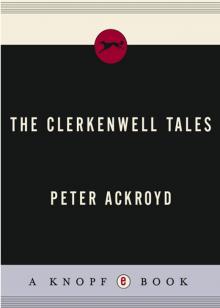 The Clerkenwell Tales
The Clerkenwell Tales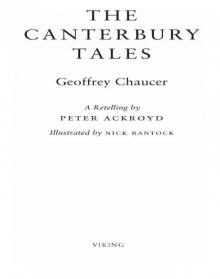 The Canterbury Tales
The Canterbury Tales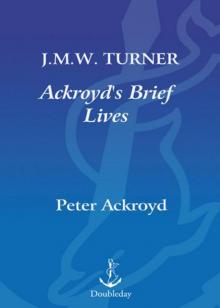 J. M. W. Turner
J. M. W. Turner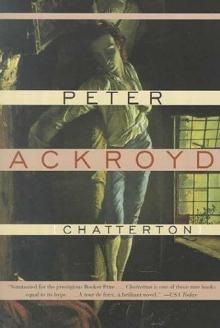 Chatterton
Chatterton The Canterbury Tales – A Retelling
The Canterbury Tales – A Retelling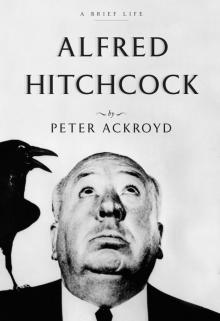 Alfred Hitchcock
Alfred Hitchcock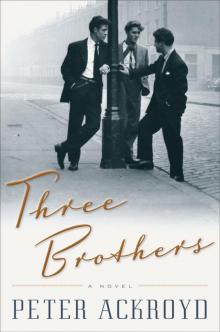 Three Brothers
Three Brothers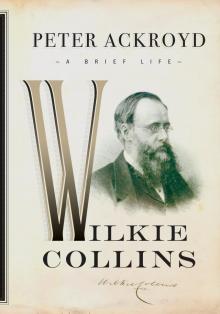 Wilkie Collins
Wilkie Collins Venice
Venice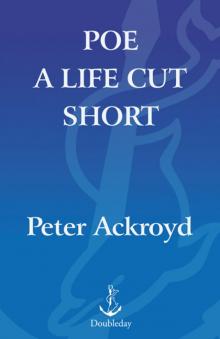 Poe
Poe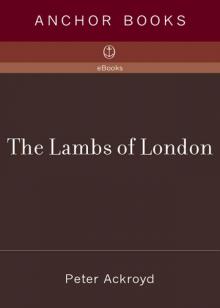 The Lambs of London
The Lambs of London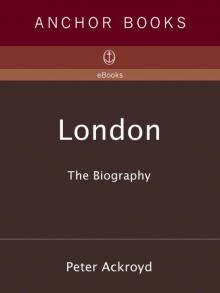 London
London Queer City
Queer City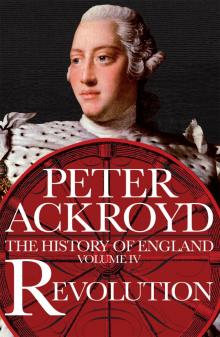 Revolution, a History of England, Volume 4
Revolution, a History of England, Volume 4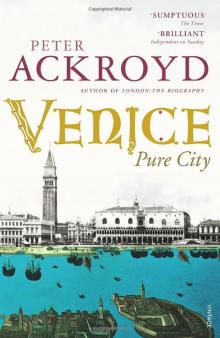 Venice: Pure City
Venice: Pure City Foundation
Foundation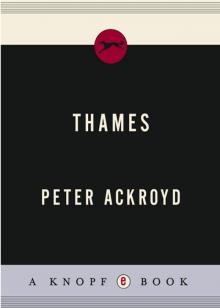 Thames
Thames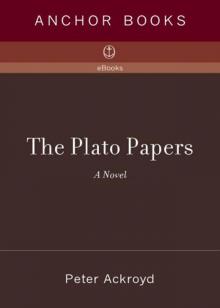 The Plato Papers
The Plato Papers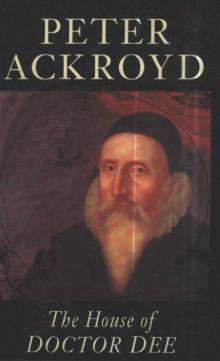 The house of Doctor Dee
The house of Doctor Dee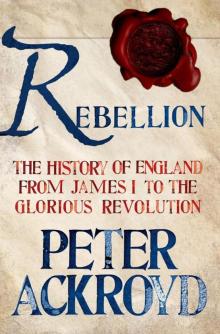 Rebellion: The History of England from James I to the Glorious Revolution
Rebellion: The History of England from James I to the Glorious Revolution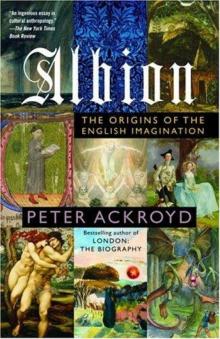 Albion: The Origins of the English Imagination
Albion: The Origins of the English Imagination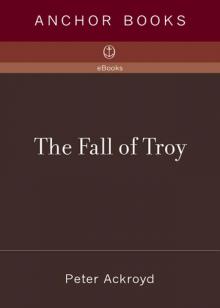 The Fall of Troy
The Fall of Troy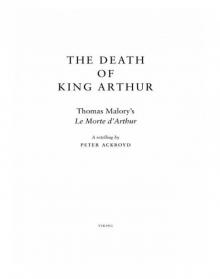 The Death of King Arthur
The Death of King Arthur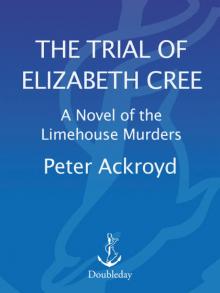 The Trial of Elizabeth Cree
The Trial of Elizabeth Cree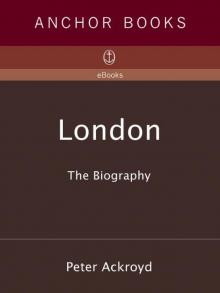 London: The Biography
London: The Biography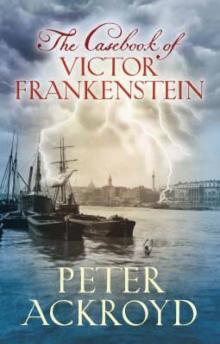 The Casebook of Victor Frankenstein
The Casebook of Victor Frankenstein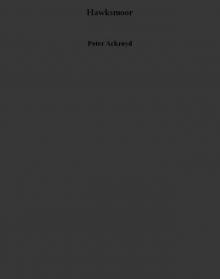 Hawksmoor
Hawksmoor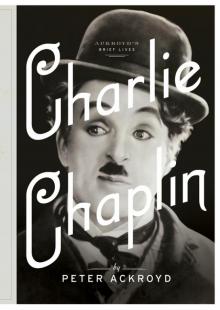 Charlie Chaplin
Charlie Chaplin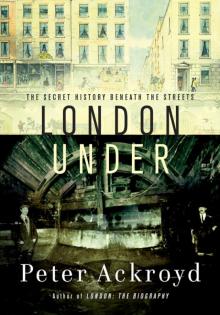 London Under
London Under